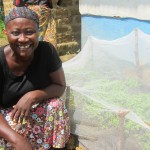
Across Liberia, Sierra Leone and Guinea, the 2014-2015 Ebola crisis affected hundreds of thousands of families. Husbands lost wives, children lost parents, and communities lost entire families to the deadly disease. While Ebola brought an unprecedented health epidemic, it also gave rise to a less visible crisis—a food crisis
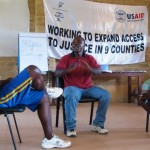
Women in rural Liberia are often unaware that Liberian divorce law grants them the right to half of all property amassed during marriage. Even if they know about the law, many women are deterred by the high costs and social stigma associated with taking a case to formal courts. With support from USAID, the Carter Center and Catholic Justice and Peace Commission now support 45 community legal advisors in seven counties around Liberia. Approximately half of all cases involve female clients. Through this program, USAID is helping to make the rule of law a reality for ordinary Liberians, often for the first time.
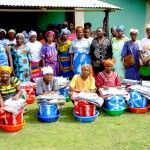
During the 14-year civil conflict in Liberia, the health system virtually collapsed. The health system’s fraglity coupled with the difficulty women face in getting to health facilities in emergencies due to no roads or means of transportation in largely rural Liberia, has led to one of the highest rates of maternal mortality in the world: 994 deaths per 100,000 live births.
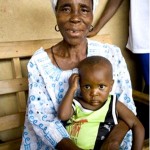
USAID is teaching women in Liberia how to properly take care of their children. The women learn which healthy foods to prepare for their children; how to avoid malaria; how, when and where to wash hands; when they should go to the nearest health clinic or hospital; how and when to use Oral Rehydration Salts to stop diarrhea, and other important health tips.
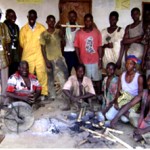
Saah Fassi is a professional blacksmith in Foya, Lofa County, Liberia. Although he does not know his exact age, Fassi does know that he apprenticed in his youth for almost a decade. He estimates he has been a master blacksmith for more than three decades and might be in his late 50’s.








Comment
Make a general inquiry or suggest an improvement.